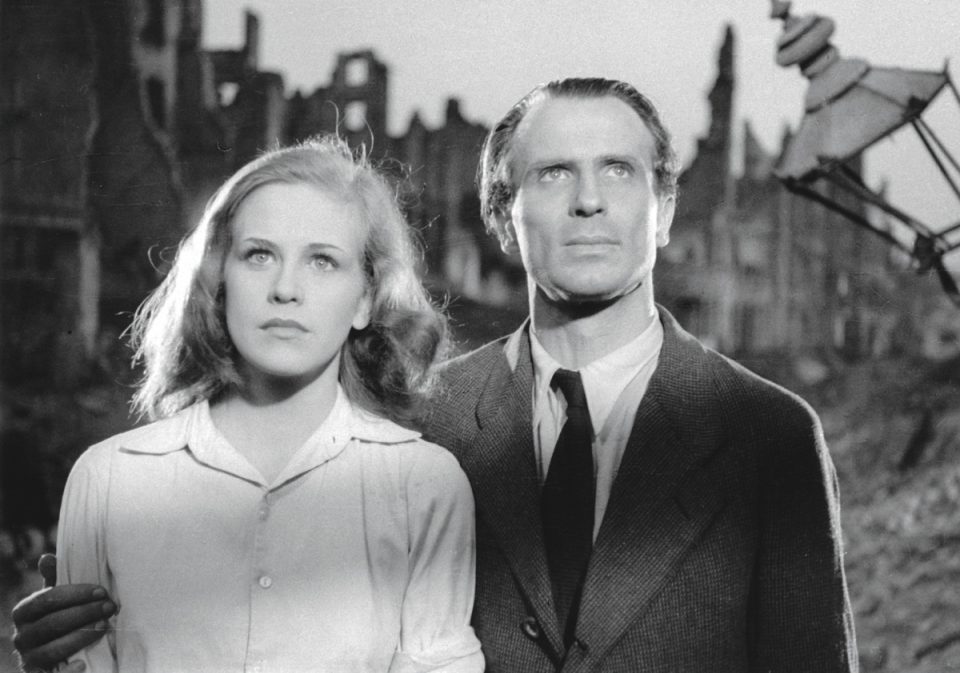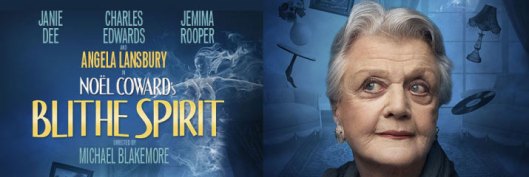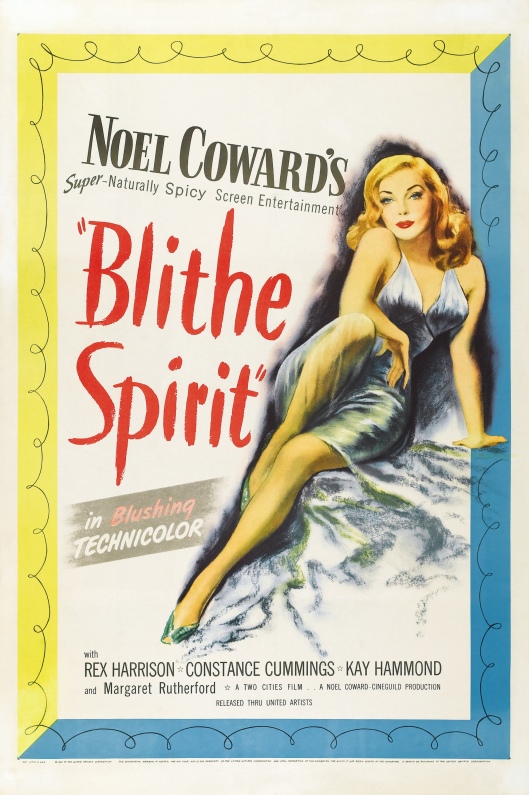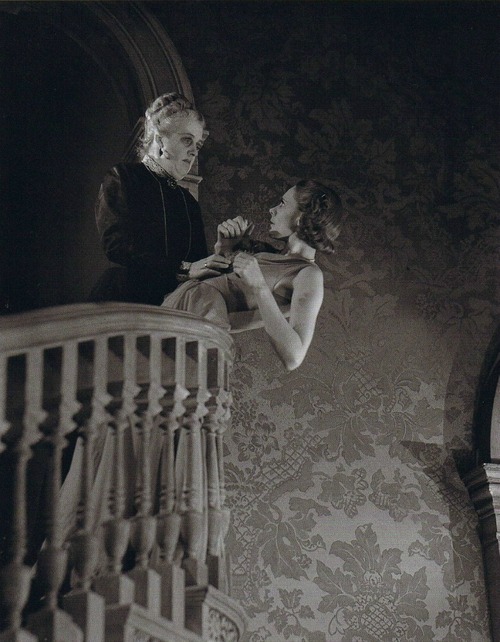Tags
angela lansbury, bbc, blithe spirit, charles condomine, cornwall, daphne du maurier, david lean, gertrude lawrence, gielgud theatre, influence, inspiration, intertexts, literature, london, madame arcati, manderley, margaret rutherford, mrs danvers, noel coward, origins, portmeirion, rebecca, theatre
I went to see Noel Coward’s Blithe Spirit last night, the wonderful new production that is currently at the Gielgud Theatre. It stars Angela Lansbury as Madame Arcati, the medium who unwittingly summons Charles Condomine’s first wife back from the dead. If you are in London before the middle of June 2014, I really recommend it.
Assessments of Coward’s play have tended towards the scathing in recent years, as I discovered during some brief web-searching. Reviewers have increasingly dismissed it as too light and fluffy, with jokes that have long gone stale, while also excoriating its easy misogyny. If there is no disputing the latter problem (though I still think the play very funny), what struck me last night were the similarities between it and the work of another celebrated British writer, a woman. I am talking about Daphne du Maurier and her novel Rebecca.
Both Blithe Spirit and Rebecca depict second wives (Ruth and the second Mrs de Winter respectively) who are harassed by the unnatural presence of their husbands’ deceased first spouses (Elvira and Rebecca). Both choose for their main male characters urbane but emotionally-cold men: Charles and Maximillian. And both eventually pin the blame for the strange goings-on on the servants, Edith in Blithe Spirit and Mrs Danvers in Rebecca. Ultimately, each concludes with the destruction of the property in which the story has occurred: the Condomine mansion in Kent, which falls down, and Manderley in Cornwall, which is razed to the ground by fire.

Like Blithe Spirit, Rebecca was very popular, selling almost 3 million copies in its first quarter-century in print.
The connections seem so strong to me that I was surprised not to find anything about them online, neither on Noel Coward fan sites (of which there are many) nor in the usual scholarly journals. I am therefore posting this short piece to share my own hypothesis and to ask others to come forward with either corroboration or challenge.
The dating of the two works makes a conscious connection between them very possible, and would mean that Coward’s play, written in 1941, was – at least on one level – a parody of or comic foil for du Maurier’s novel, which was published in 1938. Coward and du Maurier were close acquaintances, linked through their friendship with the English actor Gertrude Lawrence, who was Coward’s professional partner and, probably, du Maurier’s lover. Coward wrote Blithe Spirit during a frantic burst of creativity on a holiday in Portmeirion in May 1941; it took him just five days from beginning to end. Alfred Hitchcock’s film of Rebecca had opened in London cinemas a matter of ten months before.
And within Blithe Spirit’s text there are many lines that can be read as playful references to the earlier work. Elvira reminds Charles, for instance, of what “an absolute pig” he was “that time we went to Cornwall and stayed in that awful hotel”; du Maurier’s Manderley is in Cornwall. Rebecca is said to have been drowned at sea, although this always seems to be an improbable explanation for her death and finally turns out to be untrue. In Blithe Spirit, Ruth, equally implausibly, has been told that Elvira perished “when she started to laugh helplessly at one of the BBC musical programmes and [had] a heart attack”. Meanwhile, the authoritative and, on the surface, coldly effective Mrs Danvers is mirrored, in Coward’s play, by the bumbling country bumpkin, Edith, who nonetheless still manages to be the hidden hand that drives events – alongside Madame Arcati, of course, who also has a Danvers-like part and, in some ways, acts as an engine for the narrative.
If you have had any thoughts along these lines yourself, please get in touch. (One final connection I’ll mention, which is (surely) just chance, is that, in the first stage production of Rebecca (March, 1940), Mrs Danvers was played by Margaret Rutherford, who, just over a year later, was also London’s first Madame Arcati!) The plot, as they say, thickens.




